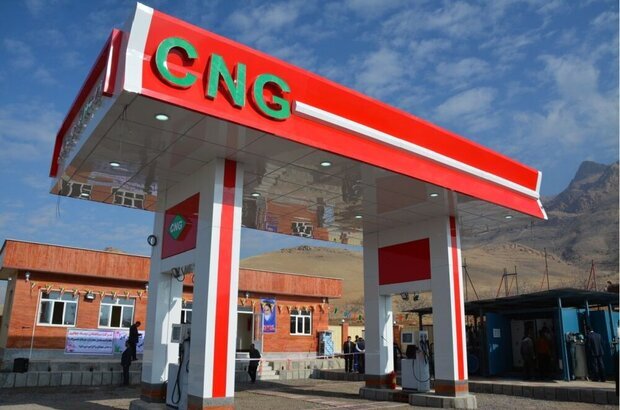CNG development seriously on the agenda
CNG development seriously on the agenda
TEHRAN- Due to the importance of compressed natural gas (CNG) in reducing dependence on gasoline and improving air quality, multiple plans have been put in place to develop the infrastructure of this industry and increase its consumption in the country.

Efforts such as expanding distribution capacity, optimizing CNG stations, and implementing supportive measures are among the steps that can increase the share of this fuel in the basket of transportation energy.
According to the released data, the daily distribution capacity of CNG in the country has exceeded 40 million cubic meters, while current consumption stands at around 19.2 million cubic meters per day.
This gap between capacity and consumption creates a great opportunity to increase the share of this clean fuel in the national energy basket.
One of the most significant initiatives in this area is the implementation of a program for free conversion of vehicles to dual-fuel ones. This program, supported by the government and carried out in collaboration with the private sector, plays an effective role in promoting CNG use.
Additionally, two new contracts have been signed with automakers for producing gas-powered vehicles, which are expected to lead to increased demand for this fuel.
In addition to expanding the fleet of gas-fueled vehicles, expert evaluations are ongoing to improve economic policies related to this fuel. In this regard, the issue of CNG station service rates has been highlighted, and new proposals for their optimization are under review.
In an interview conducted by ISNA, Keramat Veis-Karami, the managing director of the National Iranian Oil Products Distribution Company (NIOPDC) pointed out the importance of promoting CNG consumption in reducing air pollution and gasoline dependence, and stated, “Over the past 23 years, 2,500 CNG stations have been established in the country. However, in recent years, the consumption of this fuel has been declining. With the implementation of new policies, it is expected that this trend will change in the current year.”
Considering the high supply capacity of CNG and developmental plans in this sector, it seems this fuel could play a more significant role in supplying energy for the transportation sector in the future.
As stated by the head of the National Association of Alternative Fuels and Related Services, expanding the use of compressed natural gas in Iran could save 20 million liters of gasoline annually within three years.
Speaking at the national conference “Green Prosperity: Energy Innovations and Clean Transportation” in last December, Ali Mahmoudian emphasized that increasing CNG usage would significantly reduce the need for gasoline imports and address energy challenges.
“CNG currently accounts for 17 percent of the country’s fuel basket, which is inadequate for a natural gas-producing nation with the infrastructure capacity to supply 50 million cubic meters daily,” Mahmoudian said.
He noted that while 2,500 fueling stations are connected to the national gas network—a feat unmatched globally—expansion has stalled due to unresolved barriers.
Mahmoudian pointed out that during the 2000s, when gasoline demand surged, the CNG industry played a crucial role in stabilizing fuel supplies. However, the sector now faces obstacles, including tax policies, business constraints, and unfulfilled government commitments.
He warned of an impending fuel crisis, projecting a daily gasoline shortfall of 150 million liters by 2031 unless corrective actions are taken.
“Iran is rich in resources but poor in energy governance,” Mahmoudian said, highlighting the country’s underutilization of its vast underground energy reserves. He criticized the current year’s budget, which allocates over 70 percent of funds to current expenditures rather than infrastructure, education, or research—areas prioritized by nations like Singapore, South Korea, and Japan.
Mahmoudian urged policymakers to invest in CNG development, emphasizing its potential to curb gasoline imports and deliver long-term economic and environmental benefits.
source: tehrantimes.com